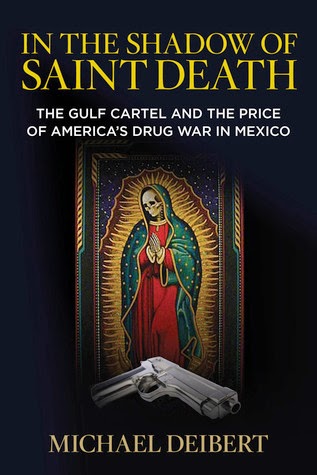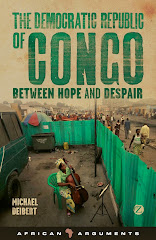Sunday, January 01, 2023
2022: A Reporter's Notebook of the Year Gone By
Books in 2022: A Personal Selection
Henry Miller on the Greek island of Hydra, 1939.
Athens In Poems: An Imaginative Map of the City
An absolutely gorgeous selection of poetry celebrating the Greek capital given to me by the manager of a cooperative bookstore in the neighborhood of Exarcheia when I was there this past autumn.
Odessa Stories by Isaac Babel
A picture of a vanished place and people, these stories by the great Ukrainian-Jewish writer Isaac Babel (who later was arrested and executed by the security services of Joseph Stalin), this interlocked collection focuses on the world of a crime boss in Odessa called Benya Krik, known as the King, and the human
fauna the move within it in 1920s Odessa.
Young Skins by Colin Barrett
Gripping, taut and often bleak stories about mostly young people in contemporary Ireland.
The Last Summer of Reason by Tahar Djaout
A searing dystopian vision by an eminent Algerian writer who was slain by Islamist radicals in that country in 1993, this novel (originally written and published in French as Le Dernier Été de la raison) depicts a nation overtaken by intolerant religious fanatics. A beautifully written, poignant and prescient book, the author can write lines about how "Today, everything was heralding fall, with its tender light, benevolent even in its sadness" even as he depicts a place descended into madness.
Insurgent Cuba Race, Nation, and Revolution, 1868-1898 by Ada Ferrer
An enlightening book look at the complex racial dynamics of Cuba's long struggle to free itself from Spanish rule.
The Friends of Eddie Coyle by George V. HigginsA mob story depicting the underworld of then-contemporaneous early 1970s Boston, this book crackles with good and often profane dialogue as the plot heads to its inevitable dénouement.
Milton and the English Revolution by Christopher Hill
A book that gets to the heart of the extreme political commitment that informed Milton's life and work and chronicles in detail a life of dizzying triumphs and bitter disappointments that gave the world some of its greatest poetry.
Desert People: A Study of the Walbiri Aborigines of Central Australia Book by Mervyn Meggitt
A story of the Walbiri people scattered through Australia's Northern Territory by the anthropologist Mervyn Meggitt, I found this book very interesting in its depiction of a people and culture very foreign to many readers yet still informed by great complexity and a deep bond with the land where they live.
The Colossus of Maroussi by Henry Miller
A book chronicling the American author Henry Miller’s travels through Greece as World War II and his own unwanted return to the United States loomed, this is a beautiful tribute to the country, its culture and its history, as Miller finds himself inspired and rhapsodizing about a new locale in way he hadn't since his early days in Paris a decade earlier. There is a poignancy to the loveliness of his descrpuitons made more so by both the impending conflict and his realization that, at nearly 50, he himself was steadily getting older:
There was the air outside and the sky full of stars. I had promised myself on leaving Paris not to do a stroke of work for a year. It was my first real vacation in 20 years and I was ready for it. Everything seemed right to me. There was no time anymore, just me drifting along and a slow boat ready to meet all commerce and take whatever it came along. Out of the sea, as if Homer himself had arranged it for me, the islands bobbed up, lonely, deserted, mysterious in the fading light. I couldn’t ask for more, nor did I want anything more. I had everything a man could desire, and I knew it. I knew too that I might never have it again. I felt the war coming - it was getting closer and closer every day. For a little while yet there would be peace and men might still behave like human beings.
In Love with Hell: Drink in the Lives and Work of Eleven Writers by William Palmer
An unsentimental look at the often destructive role that alcohol played in the lives of 11 authors, including John Cheever, Malcolm Lowry, Flann O’Brien and Jean Rhys, Flann O’Brien, this book makes one all the more appreciative of the brilliance the writers that it covers produced considering the ferocious demons many of them were battling.
The Shepherd's Life: Modern Dispatches from an Ancient Landscape by James Rebanks
A first-person account of the life of a working shepherd in Cumbia in the north of England, this book may be a little too in love with its subject (the folks up north are inevitably wily, hard-working and resourceful, everyone not from that circle rather less so), but it still manages to paint an evocative picture of a alternately harsh and abundant landscape and the people who work it and cater to their animals who live there.
Bread and Wine by Ignazio Silone
A magnificent anti-fascist and anti-Stalinist work set in Benito Mussolini's Italy (where the author was in exile from), the novel introduces us to the memorable revolutionary character of Pietro Spina, whose own ethos can be summed up by his declaration:
One can be free even under a dictatorship on one simple condition, that is, if one struggles against it. A man who thinks with his own mind and remains uncorrupted is a free man. A man who struggles for what he believes to be right as a free man. You can live in the most democratic country in the world, and if you are lazy, callous, servile, you are not a freeman, in spite of the absence of violence and coercion, you are a slave. Freedom is not a thing that must be begged from others. You must take it for yourself, whatever share you can.
The Hill Bachelors by William Trevor
A finely-honed collection of short stories by a renowned Irish writer depicting people who, in a number of ways, are haunted by decisions they either took or didn't take and where those choices have led them in their lives.





